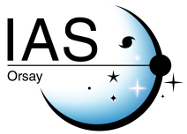Post-Doctoral Research position in mm & sub-mm waves Astronomical Instrumentation
Position filled.
Key Responsibilities, Accountabilities or Duties
- Definition of requirements and specifications of receiver systems and components;
- Overall and detailed definition of receiver systems;
- Design of test set-ups for detection system characterisation and qualification at cryogenic temperature;
- Assembly, Integration and Verification (AIV) of cryogenically cooled detection systems;
- Participation to specific balloon borne and/or space projects;
- Coordinate detector tests within IAS and with partners;
- Coordination and management of research with other collaborating institutes;
- Write up reports and publications;
- Dissemination of knowledge in conferences;
- Help in supervision of post-graduate students working on similar projects;
- Help in preparation of future funding proposals.
Essential Knowledge, Skills and Experience.
- A PhD in a relevant field;
- Specialist knowledge in general radio / mm and sub-mm waves instrumentation;
- Expertise in mm-wave detection systems, preferably on direct detectors such as bolometers and/or KIDs;
- Experience in optical/RF testing/calibration;
- Expertise in cryogenic systems, preferably with sub-K systems;
- Proven ability to write reports and good publications record relative to previous employment length;
- Good oral communication skills and good ability to present work within collaborations and in conferences – Ability to liaise effectively with a range of individuals;
- Ability to travel and work in other institutes;
- Willingness to learn French if not already experienced.
Desirable Knowledge, Skills and Experience
- Specialist knowledge in waveguide, antennas and/or meta-material technologies;
- Specialist knowledge in astronomical receivers and/or astronomical instrumentation;
- Experience in 3D RF modelling using HFSS, FEKO, CST or similar software packages;
- Experience with operation of vector network analysers;
- Experience in thermo-mechanical modelling;
- Ability to supervise PhD students.
Context:
Having participated to or/and led several space missions (Planck, Herschel, ISO, Rosetta to cite only a few) as well as contributed to several balloon and ground based projects, the Institut d’Astrophysique Spatiale (IAS) based on the Paris-Sud university campus in Orsay is one of the largest space institutes in France. It has many international collaborations and is working closely with CNES, ESA, NASA and JAXA.
Salary: €30,900 – €42,865 per annum depending on experience
Start: From 1 st of July 2016
Duration: 2 years
Probation period: 1 month
Based at: Institut d’Astrophysique Spatiale (IAS) – Orsay, France, Université Paris-Sud, Université Paris-Saclay
Contact: Prof. Bruno Maffei (bmaffei@ias.u-psud.fr) for further informal enquiries
Application:



